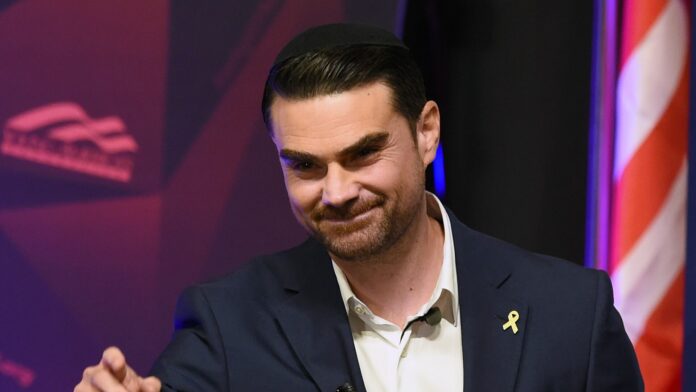The FIFA World Cup 2026, set to be co-hosted by the United States, Mexico, and Canada, was meant to showcase North America as a hub for global tourism and business. Instead, the event is fast becoming a political flashpoint. Pennsylvania Governor Josh Shapiro has openly criticized President Donald Trump’s immigration policies, arguing they will discourage foreign fans from attending and burden U.S. businesses with tariffs and restrictions.
This clash not only underscores America’s deep political divides but also raises urgent questions about how immigration laws and economic policy will shape one of the most significant global sporting events in history.
The Shapiro–Trump Clash Explained
Governor Shapiro’s remarks came during a press conference where he outlined concerns that Trump’s restrictive visa policies and rhetoric on immigration would send the wrong message to international travelers. According to Shapiro, “The World Cup should be a celebration of unity, not a showcase of hostility.”
President Trump, however, has defended his approach, arguing that national security and border control must remain priorities even during international events. Supporters of the administration point to past issues with terrorism, illegal entry, and overstayed visas, insisting that stricter policies protect both Americans and visitors.
Tourism at Risk: Numbers Behind the Concern
- Visa Restrictions: Tighter screening could delay or reduce the number of international fans able to secure travel documents. This could affect attendance in key host cities like Philadelphia, Los Angeles, and Dallas.
- Projected Revenue: FIFA estimates the World Cup could generate billions in tourism revenue, with hotels, airlines, restaurants, and retail sectors expected to see historic gains. Reduced attendance would disproportionately harm small businesses relying on the influx of global visitors.
- Historical Comparison: During the 1994 U.S. World Cup, the country welcomed nearly 3.6 million international spectators. Economists fear the 2026 event could fall short of similar benchmarks if visa bottlenecks persist.
Tariffs and the Business Economy
Beyond immigration, Shapiro criticized Trump’s new tariff structure, which increases costs for imported goods such as sports merchandise, construction materials, and even food supplies for stadiums.
- Merchandise: Imported jerseys, flags, and fan gear will carry higher price tags.
- Construction Costs: Stadium upgrades and new infrastructure could balloon in cost, straining municipal budgets.
- Hospitality Sector: Restaurants and event organizers warn that tariffs on imported goods like wine and specialty foods may affect supply and pricing for visiting fans.
Business leaders argue that instead of creating a welcoming environment for global visitors, these policies risk pricing out fans and dampening the celebratory atmosphere that such an event depends on.
Regional Impacts Across Host Cities
The World Cup will stretch across more than a dozen U.S. cities, each facing different challenges under the current political climate.
- Philadelphia: As Shapiro’s home turf, the city is at the center of the immigration debate. Officials fear fewer international fans will impact hotel bookings and restaurant revenues.
- Los Angeles & New York: Major global hubs that rely heavily on foreign tourism. Visa restrictions could especially hurt these markets, which attract a high percentage of overseas travelers.
- Southern Border States: Texas cities like Houston and Dallas will have to balance heightened border security with an influx of international fans from Latin America.
The Broader Political Stakes
The Shapiro–Trump dispute also highlights the politicization of global events in America. Instead of being a neutral celebration of sport, the World Cup has become a platform for debating national identity, immigration, and economic strategy.
Analysts suggest Shapiro’s criticism is also a strategic move to position himself on the national stage ahead of 2026. By championing inclusivity and global openness, he appeals not just to Democrats but to international stakeholders watching America’s political climate.
Historical Context: When Politics and Sports Collide
The U.S. has seen global events mired in political battles before. The 1980 Olympic boycott over the Soviet invasion of Afghanistan and the heightened security concerns during the 2002 Salt Lake City Winter Olympics remind us that politics and sports are never entirely separate. What makes the 2026 World Cup unique is the scale: with over 48 teams and millions of expected visitors, the stakes for mismanaging immigration or economic policy are unprecedented.
Looking Ahead to 2026
As planning ramps up, two key questions remain:
- Will immigration reforms ease before kickoff? Business leaders and host city officials are lobbying for streamlined visa processes to avoid deterring fans.
- Can politics stay off the pitch? If the immigration and tariff debates continue to dominate headlines, the World Cup risks being remembered less for its matches and more for its controversies.
Conclusion
The fallout between Josh Shapiro and Donald Trump over immigration policies illustrates how deeply politics is embedded in America’s hosting of the 2026 World Cup. For international fans, local businesses, and the U.S. economy, the stakes are clear: whether America projects openness or division may ultimately define not only the tournament’s success but the country’s global image for years to come.




